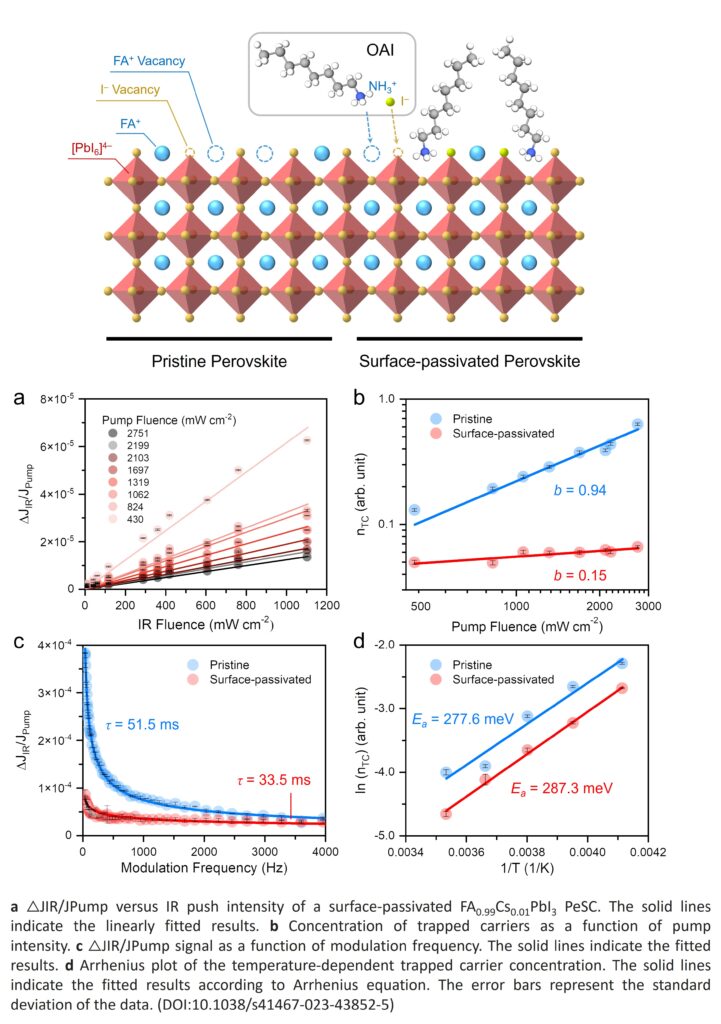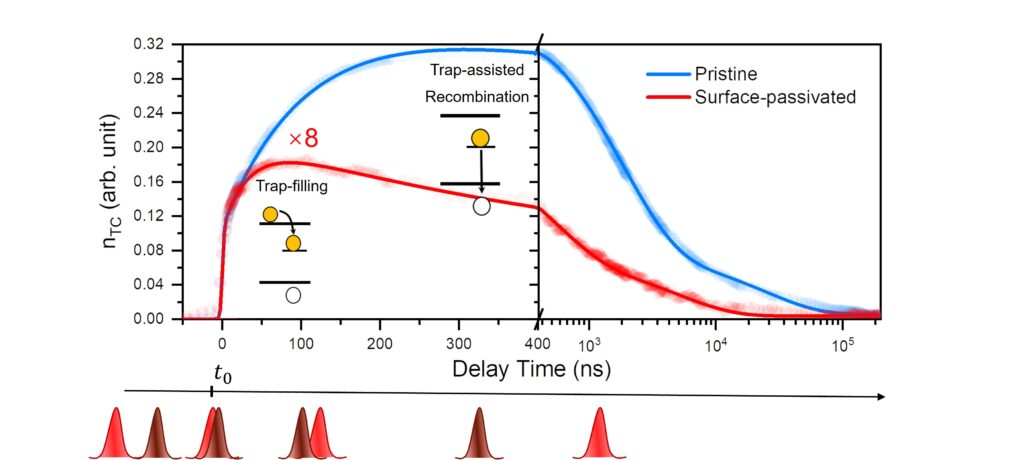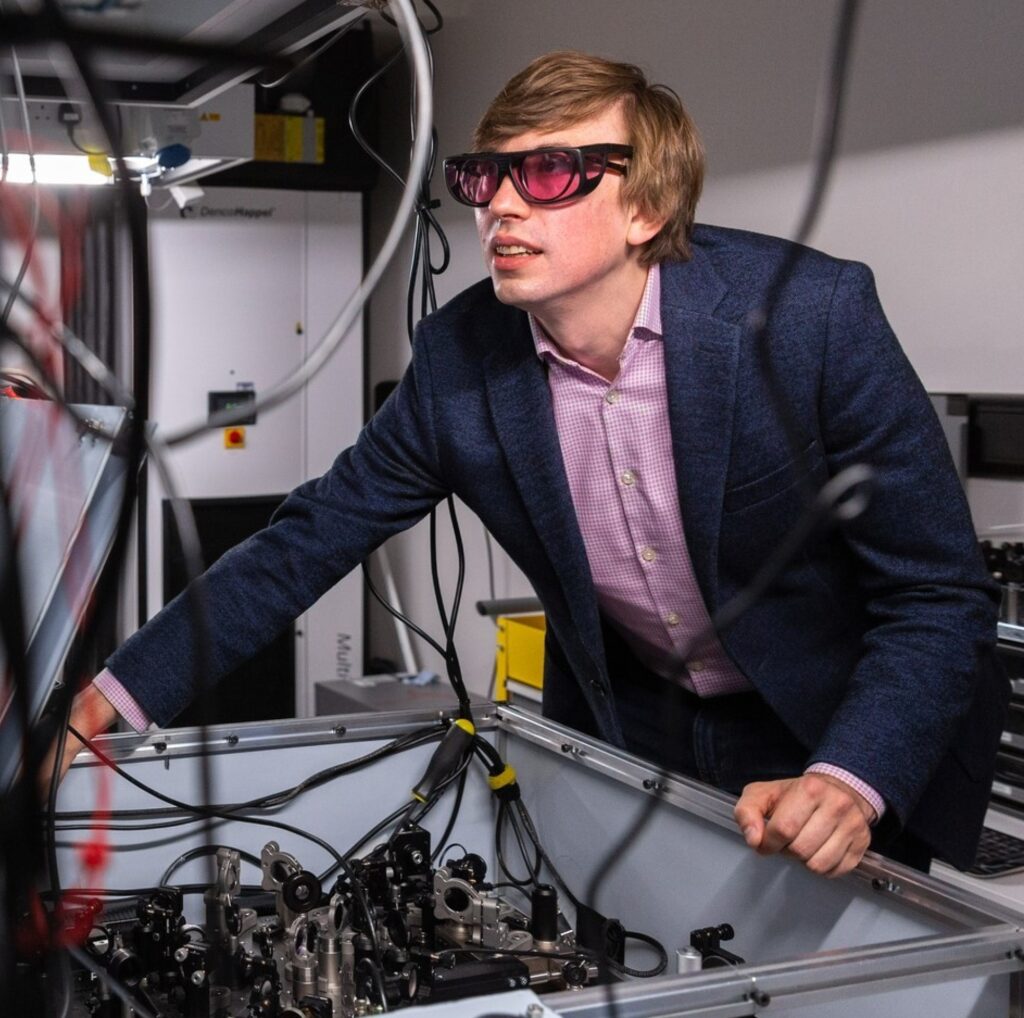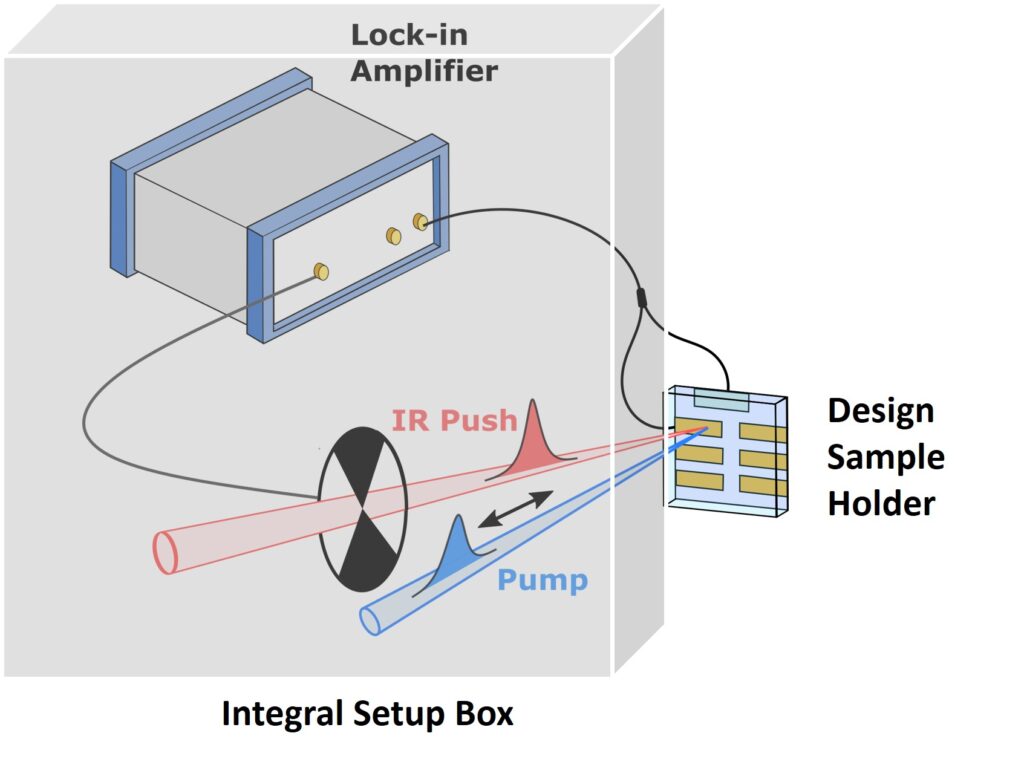Pump Push Photocurrent (PPPc)
✓trap Properties insights
✓ verified in Perovskite solar cell (nat comm. published)
✓ can be employed in band-to-band semiconductor
Versatility of PPPc
Explore the comprehensive collection of published papers detailing the groundbreaking applications of PPPc spectroscopy in a diverse range of devices, highlighting its transformative impact in advancing research and innovation in the field of optoelectronics.
PeSCs
Perovskite Solar Cells
PPPc characterized density, energy depth, and dispersive level of traps as well as the 1st direct observation of trap-filling and trap-assited recombination in working PeSCs.
OPV
Organic Photovoltaics
PPPc revealing the rapid dynamics of exciton binding and dissociation, which are key to enhancing the efficiency of OPV devices.
Quantum Dot
PbS QD Photovoltaic Devices
PPPc detailed elucidation of charge trapping dynamics in PbS colloidal quantum dot photovoltaic devices.

Advanced Trap Analysis with CW-PPPc
Unlock the potential of solar cell fabrication with our CW-PPPc technology, expertly designed to precisely determine trap characteristics, aiding in the creation of more efficient and reliable devices.
Precision in Trap Density Detection
Our CW-PPPc technology elevates your research by providing exceptionally accurate measurements of trap density in perovskite solar cells. This precise detection capability is pivotal for understanding and optimizing charge carrier dynamics, directly impacting the efficiency and stability of solar cell technologies.
Unveiling Energy Depth of Traps
With CW-PPPc, delve deeper into the microscopic world of perovskite solar cells. Our sophisticated technique meticulously measures the energy depth of traps, offering critical insights into the potential energy barriers that affect charge carrier movement. This knowledge is crucial for developing strategies to enhance energy conversion efficiency.
Assessing Dispersive Level
Discover the dispersive levels of traps in your solar cells like never before. Our CW-PPPc setup not only identifies these levels but also quantifies them with unparalleled accuracy. Understanding the dispersive nature of traps allows for a comprehensive analysis of their impact on the overall performance of perovskite solar cells.
Dynamic Trap Profiling with ns-PPPc
Experience the groundbreaking revelation of trap filling and trap-assisted recombination processes, observed directly for the first time in operational solar cells.
- Effectiveness of Surface Passivation: This technique reveals how surface passivation significantly reduces trap carriers, particularly at interfaces.
- Trap Filling Dynamics: Experiments demonstrate that the trap filling process in both pristine and surface-passivated devices involves rapidly filling low-density traps (within approximately 10 nanoseconds) and more slowly filling high-density traps (around 100 nanoseconds).

Frequently Asked Questions
For any concern or question, please leave a comment in the right section. We’ll promptly address your concerns and incorporate them into our frequently asked questions for the benefit of all users.
Meet the experts
Our Team

Dr Jiaxin Pan
Founder & CEO

Dr Ziming Chen
CTO

Dr Artem A Bakulin
Spectroscopic Advisor

Dr Piers R F Barnes
Modelling Advisor
Consulting
CW-PPPc Technic
Meticulously designed to deliver unparalleled precision in trap characterisation, enhancing your ability to tailor and optimise device performance.
“CW-PPPc technology is not just about advanced measurements; it’s about providing customizable solutions that cater to the diverse needs of solar cell research. Whether you’re working on improving existing materials or exploring new compositions, our technology adapts to your specific research requirements.”
Jiaxin Pan
PPPc Tech
Top Features
✓ World-class Design
✓ User-Friendly Interface
✓ Customizable Setup

Contact
Email
contact@pppc.tech
Leave a Reply